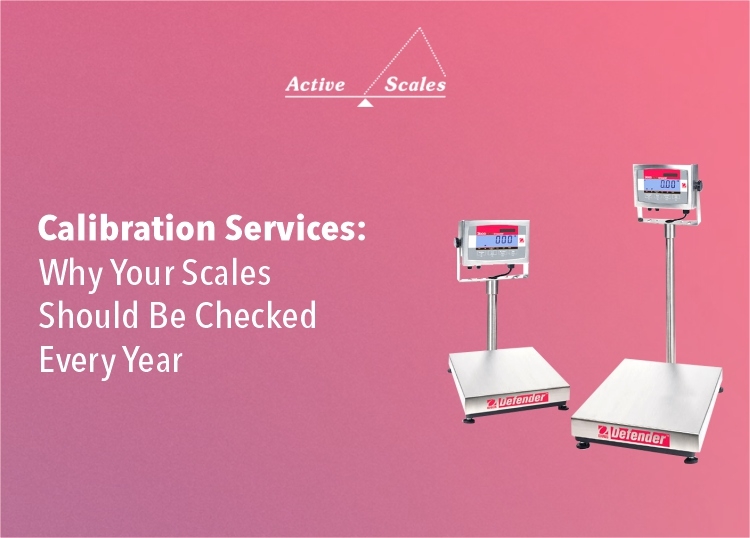 Image Designed by Freepik
Image Designed by Freepik
Calibration Services: Why Your Scales Should Be Checked Every Year
When it is about precision measurements, accuracy is of utmost importance. Whether you are in the manufacturing industry, laboratory research, or even in a commercial setting, having properly calibrated scales is essential. Calibration services play a crucial role in ensuring that your scales are accurate and reliable. In this blog, we will educate you on why it is necessary to have your scales checked every year.
Accuracy is Key
Accurate measurements are crucial in various industries, especially those that rely heavily on weight measurements. From pharmaceuticals to food production, even the slightest error in weight measurement can have significant consequences. By having your scales calibrated annually, you can ensure that your measurements are precise and within acceptable limits. Calibration services involve comparing the readings of your scales to a known standard and making necessary adjustments to eliminate any discrepancies. This process guarantees that
your
commercial weighing scales provide accurate results consistently.
Compliance with Regulations
Many industries have specific regulations and standards in place to ensure quality control and consumer safety. For instance, the pharmaceutical industry requires accurate measurements for drug formulations, while the automotive industry relies on precise weight measurements for components. By having your
industrial weighing scales calibrated regularly, you can comply with these industry-specific regulations. Calibration certificates provided by professional calibration services serve as evidence of compliance during audits or inspections, helping you avoid penalties and legal issues.
Preventing Costly Errors
Inaccurate weight measurements can lead to costly errors in various ways. In manufacturing processes, such errors can result in defective products, rework, and wasted resources. This not only impacts productivity but also adds unnecessary expenses. By investing in annual calibration services, you can detect and rectify any inaccuracies in your scales before they cause significant financial losses. Regular calibration helps you maintain product quality, minimize waste, and ensure efficient operations. If you are looking for
scale repairs in Melbourne, check out Active Scales.
Enhancing Customer Confidence
In industries where weight measurements directly affect the products sold to customers, having accurate scales is essential for building trust and confidence. Customers expect fairness and reliability when it comes to their purchases. By demonstrating your commitment to accuracy through regular scale calibration, you assure your customers that they are getting what they pay for. This builds a positive reputation for your business and encourages customer loyalty, ultimately leading to increased sales and growth.
Extending Equipment Lifespan
Regular calibration not only ensures accurate measurements but also aids in prolonging the lifespan of your scales. Over time, various factors, such as environmental conditions, wear and tear, or mishandling, can affect the performance of your scales. By scheduling annual calibration services, you can identify and address any issues promptly, preventing further damage or deterioration. Timely maintenance and adjustment of your scales help keep them in optimal condition, ultimately extending their lifespan and saving you money on frequent repairs or replacements.
Quality Management System (QMS) Compliance
For organizations with a certified Quality Management System (QMS) such as ISO 9001, regular scale calibration is a vital part of maintaining compliance. QMS standards emphasize the importance of accurate measurements and require organizations to have processes in place to ensure the reliability of measurement equipment. Annual calibration of scales demonstrates your commitment to meeting QMS requirements, allowing you to meet customer expectations, improve internal processes, and drive continuous improvement within your organization.
Traceability and Documentation
Professional calibration services provide detailed calibration certificates that document the calibration process, including the standards used, the calibration procedure, and the results obtained. These certificates serve as proof of the traceability of your measurements to national or international standards. Having proper documentation of calibration activities helps you track the history and performance of your scales, making it easier to identify any trends or issues over time. It also provides a valuable reference for future calibration cycles and ensures consistency in your measurement processes.
Conclusion
Remember, precision matters and annual scale calibration is the key to achieving it. The benefits of annual scale calibration cannot be overstated. It is a proactive approach to maintaining the integrity of your measurements and upholding the highest standards in your industry. With accuracy maintained in
different types of weighing machines, you can make informed decisions, produce quality products, reduce waste, and enhance customer satisfaction. By doing so, you are investing in the success and reputation of your business while avoiding the potential pitfalls of inaccurate measurements.
 Image Designed by Freepik
Image Designed by Freepik